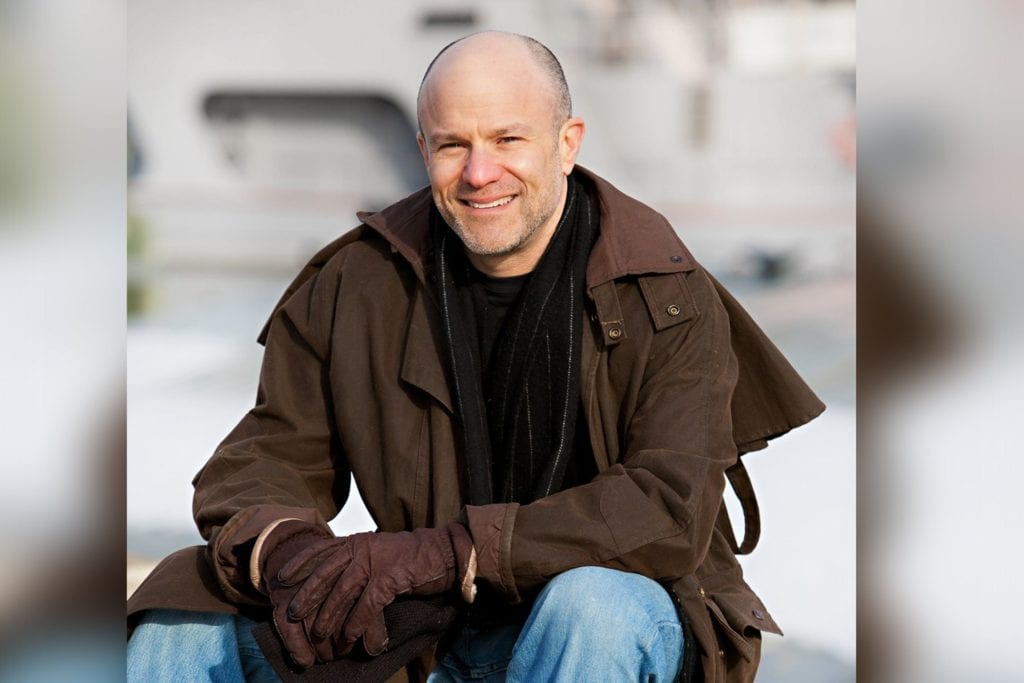‘False Light’: Revenge Can Be Sweet When It’s Untraceable
By • March 11, 2021 0 1462

“False Light” by Eric Dezenhall is a fast-moving novel about a crusty journalist at a prestigious daily newspaper in Washington, D.C. Sandy “Fuse” Petty is facing cancelation by newly woke media colleagues for pursuing “an inconvenient story,” as his lawyer puts it.
Using his legal knowledge and contacts from years of investigative journalism, Fuse sets out to set things right and get some revenge. While his immediate target is a haughty and predatory rising-star broadcast anchor, who raped the daughter of his best friend when she recently interned for him, Fuse, in taking revenge, also jolts woke members of the print media. What makes it even sweeter is the 50-something newsman enables victims’ family members to help set up the predator’s fall via a little-known litigation premise called “false light.”
The story is full of sympathetic characters: the about-to-be-tossed journalist, his wealthy friend from school days, their wives and daughters. There is also an easy-to-like crowd of friends, colleagues and old and new contacts and an array of underworld characters. They all play crucial roles in the clever plot, set in very recognizable places in Georgetown, downtown D.C. and Bethesda, Maryland.
Dezenhall reveals, intimately, the trials of the changing world of journalism. He depicts the scrabble of experienced but often tech-challenged reporters — who rely on years of personally developed contacts as verifiable, quotable news sources — who are being kicked aside by speedy and accuracy-casual digital-whiz journalists (Fuse calls them “assassins”). Then there are the click-obsessed editors who, Fuse’s attorney snarls, “will smear their own whistle-blowers.” In reality, Dezenhall said in an enclusive interview with The Georgetowner: “Journalists will eat their own.”
“I was never a journalist myself,” Dezenhall admitted, “but many of my clients are.” That’s because the author, in real life, is a crisis consultant — as in reputation crisis, as in libel and slander and defamation and (perhaps now) cancelation crisis. He founded Dezenhall Resources, which bills itself as “the nation’s leading high-stakes consultancy company,” with a partner in 1987; the offices are now located on K Street.
“False light is a very specialized, squishy piece of defamation law,” said the author. It is based on invasion-of-privacy tort law, in which injury to an individual’s reputation can be litigated because he or she is being placed in a false light.
Though Dezenhall has been called “the pit bull of public relations,” he also has a soft side that comes out delightfully in the book. He constantly demonstrates a truly loving sensitivity with regard to the conflicts, feelings and nuances of long-time marriages, wives and kids — especially teenage daughters and their hold-your-nose boyfriends, old and new friends, colleagues of all ages, bad- and good-behaving people — and the long-term consequences of all their imperfections and complex relationships. It’s almost like reading a male version of chick-lit.
Best of all, Dezenhall — in person and especially in print — is funny, sometimes hilarious. He has a self-deprecating, ironic sense of humor that makes the conversations and sharp dialogue throughout the book lighten up the highly fraught topics of reputation ruining and rape.
The end of the book leaves a delicious aftertaste of rare justice. Think of it as a satisfying revelation on how victims of slanderous, arrogant and uncaring people systematically and invisibly enable their antagonists to slander and ruin themselves — without being able to trace or blame the incidents that led to their ruin on anyone but themselves.
Dezenhall has written both nonfiction and fiction about controversies involving cases of defamation, such as in one of his first books, “Nail ’Em!: Confronting High-Profile Attacks on Celebrities & Businesses,” and his novels, such as “The Devil Himself” and “Spinning Dixie.” He is fascinated by spies and sabotage; his 2018 book, “Best of Enemies: The Last Great Spy Story of the Cold War,” was launched at a packed opening at D.C.’s Spy Museum, where actor and director Robert De Niro “showed up and stayed on to the delight of everyone,” the author proudly noted. Now, during the COVID pandemic, the launch of “False Light” will take place virtually on March 11.

